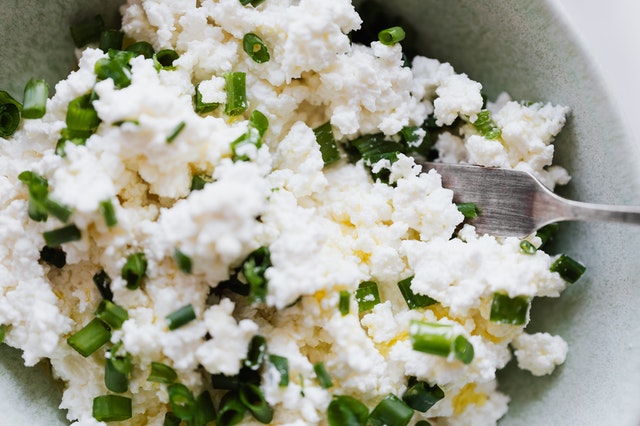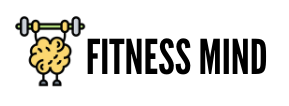Cottage Cheese: The Pros and Cons of Eating Cottage Cheese4 min read
What is cottage cheese? Is cottage cheese healthy for you?
Cottage cheese is a type of cheese that is made from milk that has been curdled by adding rennet or an acidic substance like vinegar. It is produced from the curds of different levels of pasteurized cow’s milk and it doesn’t go through an ageing or ripening process to develop flavour, resulting in the flavour being milder than other aged cheeses, and it’s considered a fresh cheese. Cottage cheese has a mild flavour and a slightly grainy texture, but it can be eaten on its own, added to recipes, or used as a dip.
Cottage cheese has been linked to weight loss due to its high protein, high nutrients and low calories benefit, and it has been recommended to be added to your healthy diet.
You can enjoy cottage cheese plain or combined with fruit, vegetables, or spices; it’s also used in baking to make cheesecakes (also known as curd cakes) and pancakes or blintzes as it is a healthier option than other regular cow’s milk.

Nutritional value of cottage cheese
The nutritional composition of cottage cheese varies depending on the amount of milk fat used and the amount of sodium used.
Here’s the nutrition you’ll find in 1 cup low fat (1 percent milk fat) cottage cheese:
- 163 calories
- 28 grams (g) protein
- 2.3 g fat
- 6.15 g carbohydrates
- 138 milligrams (mg) calcium
- 11.3 mg magnesium
- 194 mg potassium (vitamin K)
Pros of cottage cheese
Cottage cheese is high in protein, relatively low in fat, and high in calcium, B vitamins, and vitamin A. Here are some benefits that you can get from consuming cottage cheese:
- Helps with weight loss
Cottage cheese is favourable in weight loss diets because it is high in protein and calcium. Just 1 cup low fat cottage cheese (1 percent milk fat) contains 28 grams of high-quality protein into 163 calories, and the protein in cottage cheese is casein protein.
Casein protein contributes to increasing the feeling of being full, which leads to lower calorie intake and weight loss. In addition, the calcium in cottage cheese may help in weight maintenance, especially if combined with exercise.
Although, do keep in mind your cottage cheese intake if you’re doing a low-carb diet or keto diet. Cottage cheese is high in protein but it is also relatively high in carbs. The carbs in 1 cup of cottage cheese are 6.15 g, so you do want to control your daily intake.
2. Muscle building
Protein is essential if your goal is to build muscle. The casein in cottage cheese is absorbed slower than other proteins. This may assist in the prevention of muscular breakdown and the steady, gradual absorption of amino acids, resulting in higher metabolism and the ability to build muscle better.
Some research has shown that the casein protein in cottage cheese is just as effective as whey protein, or might be even better due to its slower absorption. It also has been linked to increased muscle building capacity.
3. High in selenium
Cottage cheese is high in selenium, an important trace mineral that is essential in how your thyroid works. Therefore, it is beneficial for those with Hashimoto’s thyroiditis or Graves’ disease.
Selenium has also been shown to improve antioxidant protection in the blood and reduce the risk of heart disease. To get the best maximum benefit of the selenium in cottage cheese, choose low sodium cottage cheese, or you can rinse the cottage cheese with water in a colander to remove excess sodium.
Additionally, the antioxidant, vitamin E, and selenium in cottage cheese can help your skin as well in fighting free radicals and may also prevent wrinkles, giving you healthier skin.

Cons of cottage cheese
Cottage cheese is a dairy product, which may cause some issues for some people.
As cheese ages, the lactose content of the cheese also decreases. Cottage cheese contains more lactose than other types of cheese because cottage cheese is unripened and fresh. Additionally, if more milk is added, it may contain even higher lactose.
Cottage cheese contains cow’s milk, so if you’re allergic to dairy, you should avoid cottage cheese.
Also, The high level of sodium in cottage cheese may revert the benefits of calcium on blood pressure. At the same time, too much calcium can be unhealthy based on some research.
Cottage cheese diet
Including cottage cheese in your diet would help you in your weight loss journey and will bring you a number of health benefits as it is nutritious.
However, restricting yourself to just eating a cottage cheese only diet is not advisable. The nutrition from cottage cheese itself is not enough for you to go through the day and you will lose energy easily.
How to incorporate cottage cheese in your diet?
You can absolutely add cottage cheese in your diet as an alternative to other less healthy food. Instead of snacking on processed food, cottage cheese would be a better option for you.
For example, you can substitute mayo in your egg salad or your sandwich with cottage cheese, or enjoy your cottage cheese topped with berries, mango, pineapple, or sprinkled with chia seeds or flax seeds. This will be a better option than you unhealthy processed food.
Here are some other creative ways to include cottage cheese in your diet:
- cottage cheese pancakes by alternating regular milk
- adding cottage cheese to your salad for extra protein
- cottage cheese parfaits
- cottage cheese on the side of scrambled eggs or omelettes
- use cottage cheese as a spread for your toast
Conclusion
Cottage cheese is nutritious and healthy to consume. It is absolutely a healthier choice of food, and you will get the healthy benefits for your weight loss and muscle building. If you want to incorporate cottage cheese in your diet, consume it in a moderate portion daily and not overeat it.

